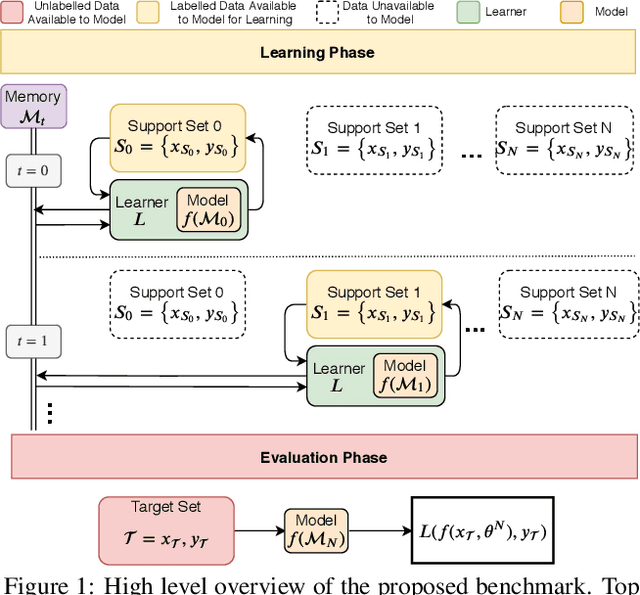Defining Benchmarks for Continual Few-Shot Learning
Paper and Code
Apr 15, 2020



Both few-shot and continual learning have seen substantial progress in the last years due to the introduction of proper benchmarks. That being said, the field has still to frame a suite of benchmarks for the highly desirable setting of continual few-shot learning, where the learner is presented a number of few-shot tasks, one after the other, and then asked to perform well on a validation set stemming from all previously seen tasks. Continual few-shot learning has a small computational footprint and is thus an excellent setting for efficient investigation and experimentation. In this paper we first define a theoretical framework for continual few-shot learning, taking into account recent literature, then we propose a range of flexible benchmarks that unify the evaluation criteria and allows exploring the problem from multiple perspectives. As part of the benchmark, we introduce a compact variant of ImageNet, called SlimageNet64, which retains all original 1000 classes but only contains 200 instances of each one (a total of 200K data-points) downscaled to 64 x 64 pixels. We provide baselines for the proposed benchmarks using a number of popular few-shot learning algorithms, as a result, exposing previously unknown strengths and weaknesses of those algorithms in continual and data-limited settings.
 Add to Chrome
Add to Chrome Add to Firefox
Add to Firefox Add to Edge
Add to Edge